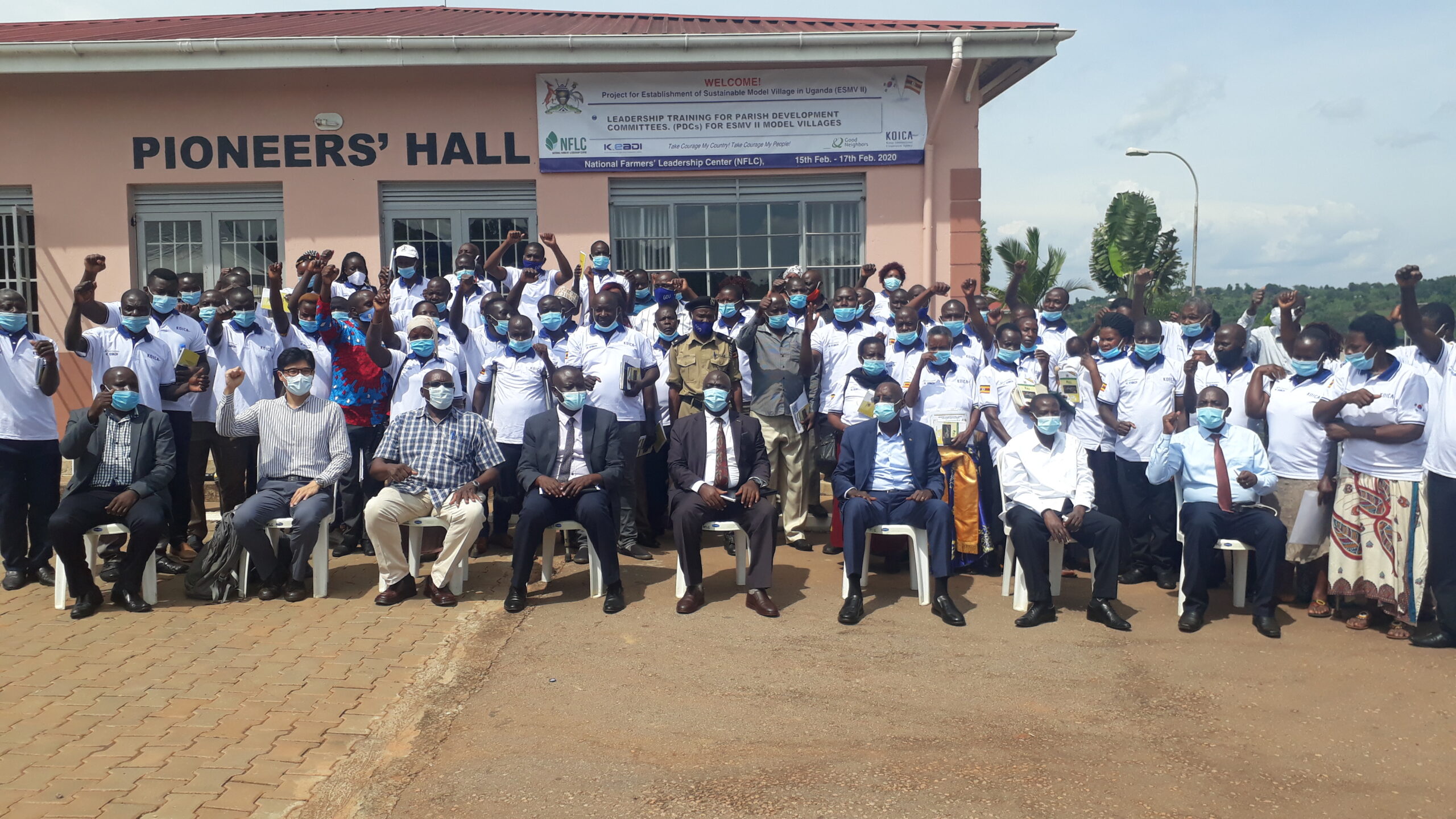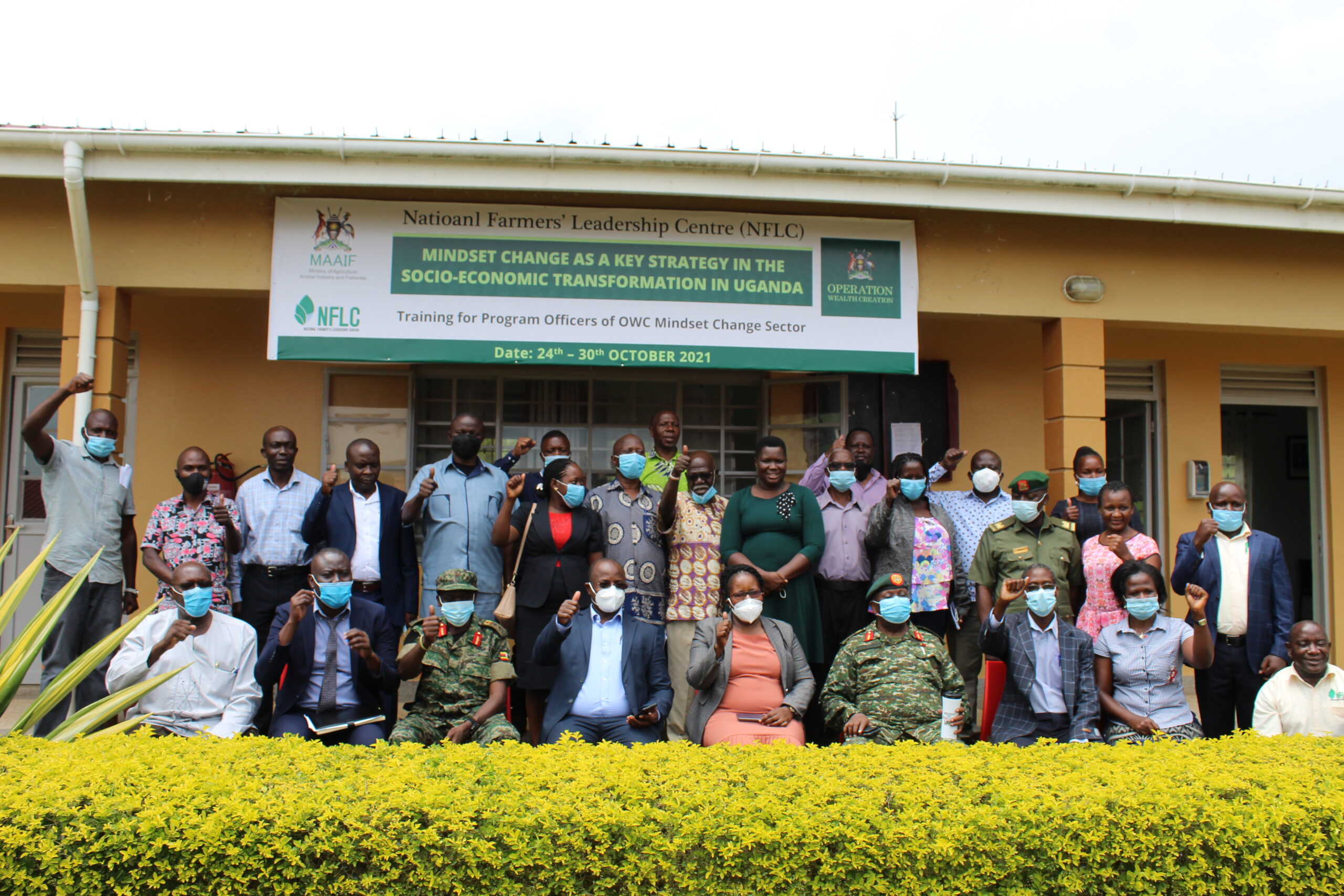NFLC training and capacity building philosophy encompasses the following:
- Creation of the psychological platform for the mindset change that overcomes the feelings of despair and defeat that are prevalent among rural communities, thus paving way for the successful rural economic transformation that fuels national socio-economic take-off. This is achieved through inculcation of the virtues of diligence, self-reliance, service, sacrifice and integrity;
- Needs-based and tailor-made programs developed to suit specific client needs;
- Modular training programs with a curriculum tailored to specific category of clients;
- Reputable and experienced internal and external trainers/facilitators to deliver training;


- Evaluation and assessment of all training programs at the level of reaction to ensure learning and impact;
- Developing the capacity of its Trainers and facilitators to enable them deliver effective training; and
- Periodic follow-up, field visits to monitor progress and performance of the trained persons in their places of work and/or abode.
Purpose of training
NFLC expects to nurture community and national leaders who are able to overcome poverty through self-sufficient and sustainable development which must start by transforming leaders. Transformed leaders are expected to transform their families, communities, and ultimately the nation. The training at NFLC goes through three major steps: Planting, Growth and Harvest as described below;
Planting
The trainees are asked to plough their mind and plant the spirit of Pioneering in their heart. NFLC encourages trainees to leave behind their old lifestyles, negative thinking, laziness, corruption, etc., and refill their hearts with the pioneering spirit of ownership, sacrifice and responsibility
Growth
At this stage, trainees are taught a new philosophy (i.e. worldview), a new lifestyle, new knowledge and life skills so that they develop new perspectives, change their lifestyle and begin to develop their communities.
Harvest
The trainees are equipped as leaders to transform themselves, their families, communities, and ultimately their nation and the world. When they return to their communities, they can plant the seed into other peoples’ hearts and raise new leaders.
Curriculum
The Centre developed specific training curricula to cater for specific training needs for the target beneficiaries. The training programs include modules on mindset change and leadership skills development and farming practices. Following up beneficiaries of training and establishing model villages per district to assess impact and provide support and backstopping form part of the training program
Mindset change and Leadership skills development
Objectives: To impart skills for changing how the trainees view themselves, their environment and the community and to help them to gain confidence in taking up more managerial roles. The participants gain skills in decision making and taking more purposeful actions.
The module covers the following topics:
- Principles of Scientific thinking
- Universal Laws of Social Change & Development
- Mindset and its Impact on Life
- Highlights of Uganda’s History
- Principles of Leadership
- Patriotic & Transformative Methods of Work
- Leadership for Agricultural Development
- Origins and concepts of mindset change
- Personal effectiveness
- Community Mobilization for Development
- Lifestyle, Nutrition & Physical Fitness for Improved Health
- Development Case Studies
- Songhai Model (Benin)
- The Ethiopian Experience
- The New Village Movement (Saemaul Undong) of Korea
- The Israeli Kibbutz System
- The Indian Agrarian Revolution
- Micro Financing in Bangladesh
Agricultural production
Objectives: To equip participants with knowledge, skills, practices and technologies required to increase production and productivity for increased incomes and food security, which would improve their livelihoods
The module includes topics on Farm management, crop and livestock husbandry:
Farm management
Training involves classroom sessions and field demonstrations. Participants also benefit from exposure visits to farms practicing recommended practices. The following topics are covered:
- Farm planning and enterprise selection
- Farmer organization
- Farming as a Business
- Savings and credit management
- Marketing
- Gross margin analysis
- Record keeping
- Reporting
- Entrepreneurship
Crop husbandry
Training involves classroom sessions and field demonstrations. Participants also benefit from exposure visits to farms practicing recommended practices. The following topics are covered:
- Recommended Agronomic practices
- Principles of Sustainable Agriculture
- Sustainable Land management and Climate Smart Agriculture
- Soil and Water Management
- Post-harvest Handling and agro-processing
- Soil fertility and Plant Nutrition Management
- Crop pests and diseases prevention, control and management
Livestock husbandry
Training involves classroom sessions and field demonstrations. Participants also benefit from exposure visits to farms practicing recommended practices. The following topics are covered:
- Animal breeding
- Livestock feed formulation and feeding
- Housing and management systems
- Disease control and management
- Milking and milk hygiene
- Value addition
Crosscutting Issues
Objectives: To equip the participants with knowledge of their roles in community and national development and to realize their civil, political and socio-economic rights and duties in order to perform their duties efficiently and effectively.
The module includes topics on roles and responsibilities, ethical conduct and community development, mainstreaming gender, HIV /AIDS, environmental sustainability, children, youth among others.

